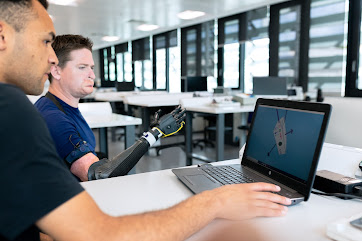AI and its Effect on Employment
Artificial Intelligence (AI) has come a long way in recent years, revolutionising the way we live and work. From self-driving cars to intelligent virtual assistants, AI is becoming more prevalent in our daily lives. But with the rapid advancement of AI, there's growing concern about its potential impact on employment.
Benefits of AI
One of the main benefits of AI is that it has the potential to increase efficiency and productivity. By automating routine tasks and analysing data, AI can free up human workers to focus on more complex and creative tasks. This could lead to higher job satisfaction and better outcomes for businesses.
However, there's also a risk that AI could lead to significant job displacement and social disruption. As machines become more intelligent than humans, they could take over jobs that were previously performed by humans, leading to job losses in some industries.
For example, the development of self-driving vehicles could displace millions of jobs in the transportation industry. Similarly, the use of automated systems in manufacturing could lead to job losses in factories. While new jobs may be created in other industries, there's no guarantee that the displaced workers will be able to find work in these new fields.
The Impact of AI on Employment
Moreover, the impact of AI on employment could exacerbate existing inequalities. Those who have the skills and training to work with AI technology will be in high demand and will likely command higher wages. However, those who lack the skills and training to work with AI may struggle to find employment or may be relegated to low-paying jobs that can't be automated. This could lead to a widening gap between the haves and have-nots, which could have significant social and political consequences.
To address these concerns, it's important to take a proactive approach to AI and employment. This could include investing in upskilling and reskilling programmes to help workers transition into new roles and develop the necessary skills to work with AI technology. It could also involve developing policies and regulations to ensure that AI is used responsibly and ethically that benefits society as a whole.
Conclusion
While AI has the potential to revolutionise the way we work, it's essential to consider its impact on employment and take steps to mitigate the potential negative effects. By working together to create a future where AI and human workers can coexist, we can ensure that everyone benefits from the advances in AI technology.





Comments
Post a Comment